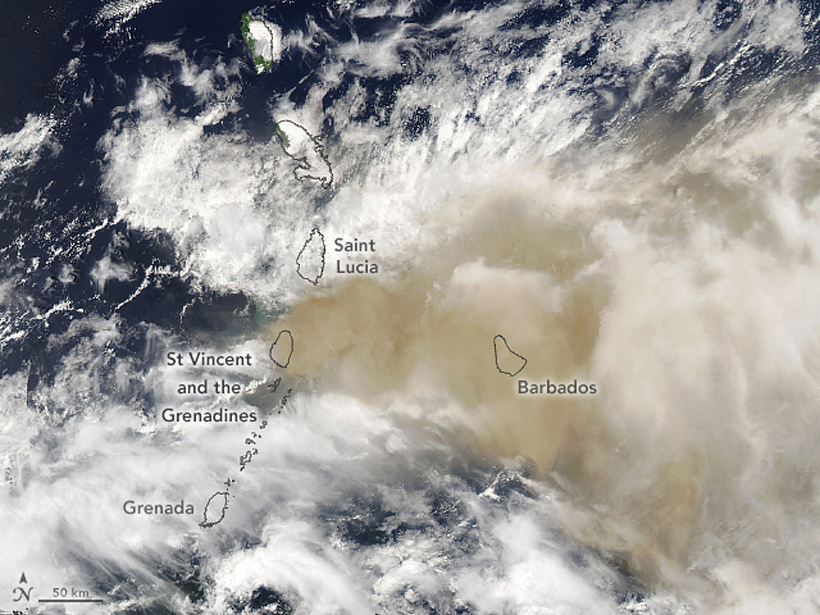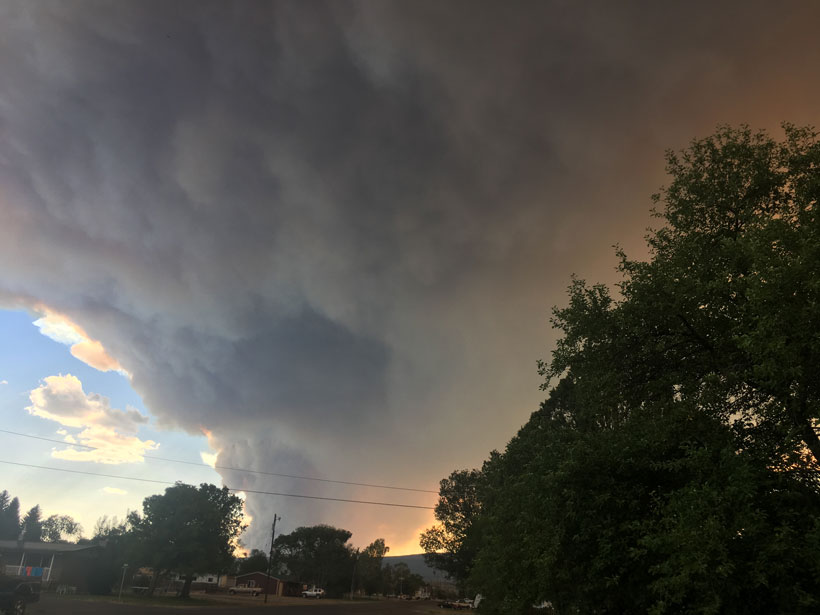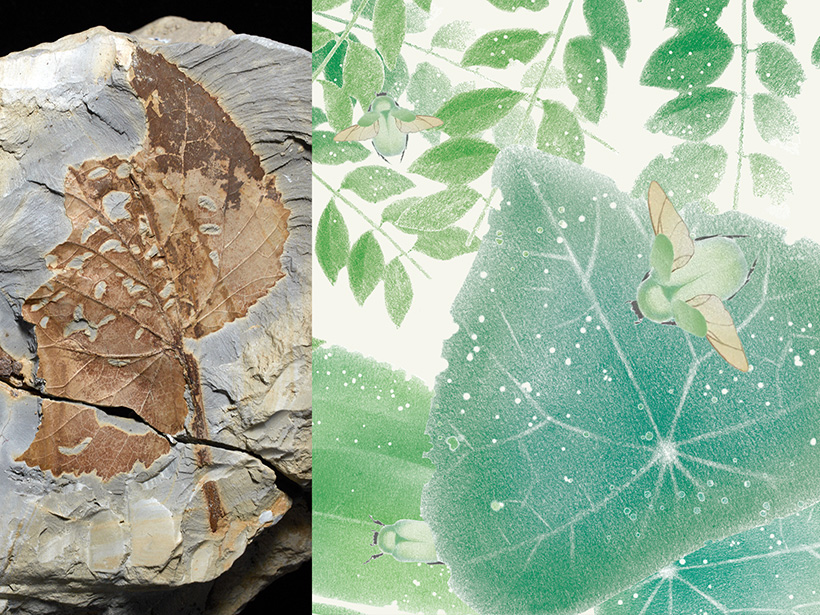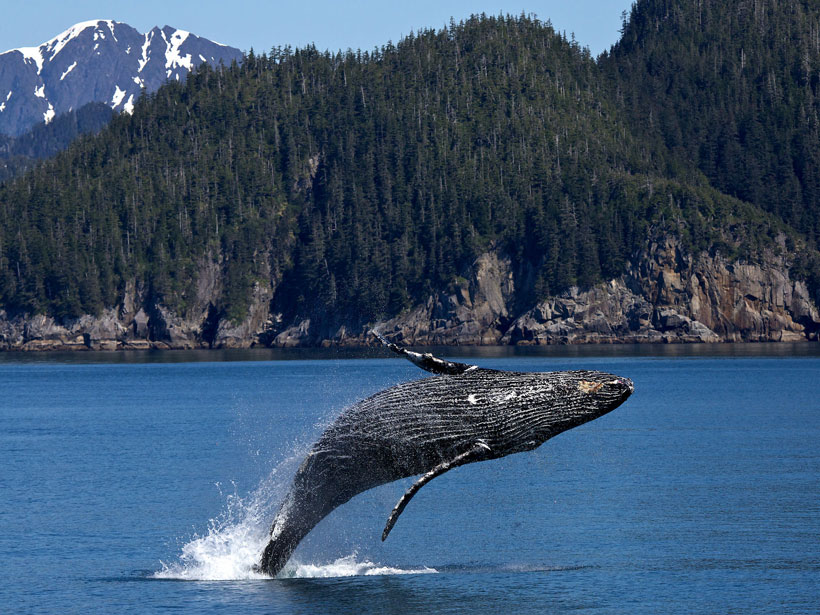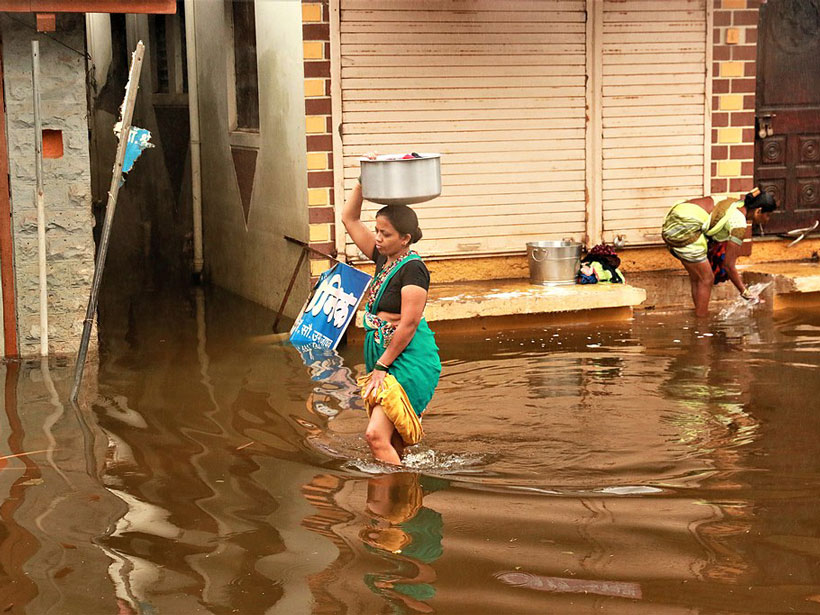Satellites in the sky combined with computers on the ground detect and track volcanic ash clouds, like those produced by Soufrière St. Vincent in April, in near-real time.
News
Taking Stock of Cosmic Rays in the Solar System
Scientists seek to understand the elusive properties of stellar and galactic cosmic rays before searching for life on exoplanets.
Ancient Maya Made Widespread Changes to Wetland Landscape
A system of canals 2 millennia old sustained a local population after the collapse of its neighbors, and it continues to affect local ecology today.
Earthquake Alerts Go Live in the Pacific Northwest
Oregon and Washington residents will receive an alert on their cell phones if they are in danger from an incoming quake.
Los Incendios forestales podrían exacerbar el asma en el oeste de los Estados Unidos
Un nuevo estudio predice que para la década de 2050, el humo de los incendios forestales hará que la región gaste $850 millones más cada año para tratar el asma.
Chicxulub Impact Changed Tropical Rain Forest Biodiversity Forever
Sixty-six million years ago, an asteroid reset most of life on Earth. But without this catastrophic event, the composition of neotropical rain forests wouldn’t be the same.
Years After the Pacific Marine Heat Wave, Ecosystem Shifts Persist
Researchers question whether Gulf of Alaska species will return to pre–heat wave conditions.
Cloud-to-Ground Lightning May Have Struck a Key Ingredient for Life
On early Earth, rock created by lightning strikes to the ground likely held a form of phosphorus necessary for prebiotic chemistry.
Why Are Women More Vulnerable to Flooding in India?
One state in India shows how policies that give women access to better resources has a real impact on mortality.
Noctilucent Clouds Light Up Northern Germany
A shift in the tropopause jet may have triggered the unusual number of high-altitude clouds that briefly appeared in the early summer of 2019.

